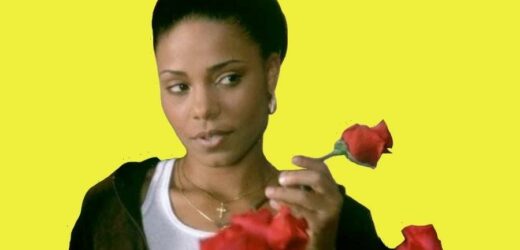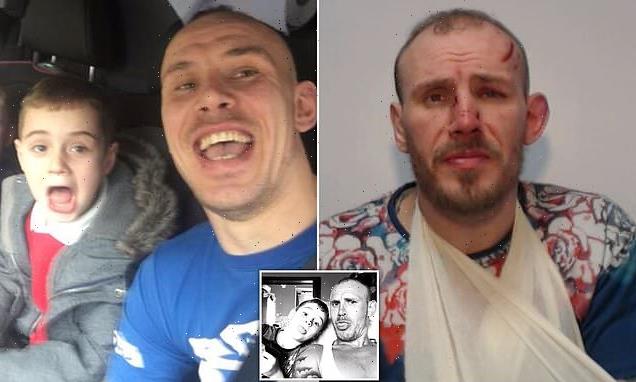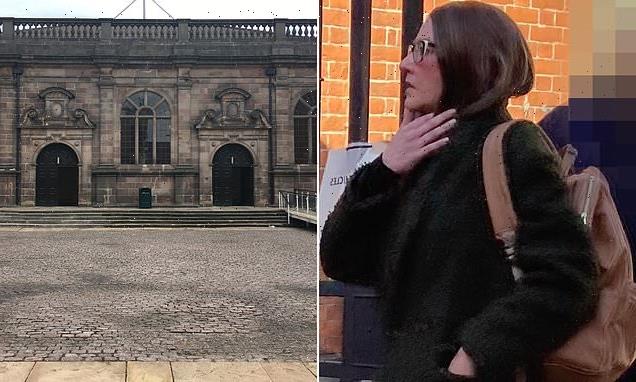Sanaa Lathan almost didn’t do Brown Sugar. It was the summer of 2000 and she was poised to perform in New York’s Shakespeare in the Park, a free, annual theatrical production. The play was a dream of hers and she wasn’t sure that Sugar, a cult classic that turns 20 today, had a strong enough script. The film industry was also revving up for a strike that would follow the longest Hollywood work stoppage on record. So Lathan chose Shakespeare’s ‘Measure for Measure’ and went on about her business.
Things changed when Sugar’s script was cleaned up, the strike didn’t happen and production was pushed back. Lathan solemnly recalls filming in the months following 9/11. “I remember we were probably one of two productions in the city. You could still smell the ash,” she tells ESSENCE. There was a sense of fear pulsing throughout the city, but also a glimmer of hope. It helped that she was working with familiar faces.
“It was Taye [Diggs], he was like family,” she says of her co-star, whom she had previously worked with on The Best Man. “Boris [Kodjoe] and Nicole Ari Parker, I had known just from being in New York, even before we started working as actors. Latifah, Mos Def. It was just such an amazing group of people and we really had that family kind of comradery.”
Brown Sugar is the brainchild of writer Michael Elliot and director Rick Famuyiwa. Elliot was a hip-hop biz whiz who later added Like Mike and Just Wright (which also starred more big names in rap) to his credits.
At the time of the film’s production, rap was grown, grown, baby. It was toasting to its late 20s, having army crawled its way from fad to pop dominance. Hip-hop, bless its heart, was new money—cue the floor-length furs, hot sex and Cristal on ice. Sure, there were conscious records and figures able to achieve major success, but the bling and booty were a baseline. (Rap sales would eventually slope downward by over 40 percent between 2000 and 2007.) There were growing concerns that hip-hop was straying from its revolutionary, introspective nature. Sugar demonstrated this through the subplot of Diggs’ Dre Ellis signing a soulless minstrel show of an act and the main point of Lathan’s Sidney Shaw grappling with how the artform was losing its soul.
Lathan remembers rap’s formative years. She talks about seeing Diddy (then Puffy) and late music executive Andre Harrell around as a teen. “I was really right there,” she says. “Not in it, but right there.” During our early morning call, she starts rapping Doug E. Fresh and Slick Rick’s “The Show” and I can’t help but chime in and say “We’re on.”
Sidney Shaw was one of the first Black girl magazine editors I saw in a film. As XXL’s fictional editor-in-chief, she was plucky, had unreleased CDs spinning in her stereo and had a strong idea of what hip-hop could be at its best. She was also deeply in love with her childhood best friend, but more on that later. To prepare for the role, Lathan was introduced to Kierna Mayo, a media legend who helped shape her in her literary image.
“I talked to her about what motivated her and how it was for her as a young Black woman, trail blazing her own path in such a male dominated [field],” Lathan says. “It still is,” she says, thinking about today’s entertainment landscape.
The actress also clues me in on charming Shaw’s sense of style, which was grown-up b-girl meets white hot editor with a book deal. “There was a look that I knew that I wanted her to have. I wanted her to be very specifically fashion and kind of hip-hop,” she says. “I’m kind of proud of myself looking back because I was so new in the business, but I fought to have my stylist friend Daria Hines actually work with the costume designer because she really knew the culture.”
“You just never know when you’re working on something that’s going to resonate. Especially as an actor, you just don’t know.”
Brown Sugar toggles between being a romance-driven story and a wake up call for what hip-hop could be when it stood up straight. (Listen, I’m no purist, but some of the early aughts’ material was questionable to say the least.) Sidney knows she loves her some Dre, but decides to maintain the sanctity of their friendship. That means putting her feelings in a bottle and watching him get married to a woman whose eyes eventually start to wander. The restaurant scene that reveals the infidelity has major replay value.
“Taye has been revealed as such a great comedian on social media, but he was always that way,” Lathan says. “I think that “celebrating my divorce,” definitely came from his comedic mind. You really felt him. You felt his pain and then it was funny. All humor comes from that true pain. I think we improved that.”
https://youtube.com/watch?v=b8FRyzTxa9A%3Ffeature%3Doembed
Lathan couldn’t have imagined the props Brown Sugar would be getting two decades later. “I can’t believe it,” she says. “You just never know when you’re working on something that’s going to resonate. Especially as an actor, you just don’t know. It’s so cool.”
I’m not surprised the movie has become hip-hop fans’ main squeeze. It has a little bit of everything; a grounded love story, cameos by some of the greatest rappers of all time and a “you can have it all” message that ends with a nice bow and includes some (padded) blows. It also centers a sweet metaphor for old love and hip-hop, too. Just when you roll your eyes and think it’s done for, it reminds you why you gave it a chance in the first place.
Source: Read Full Article


